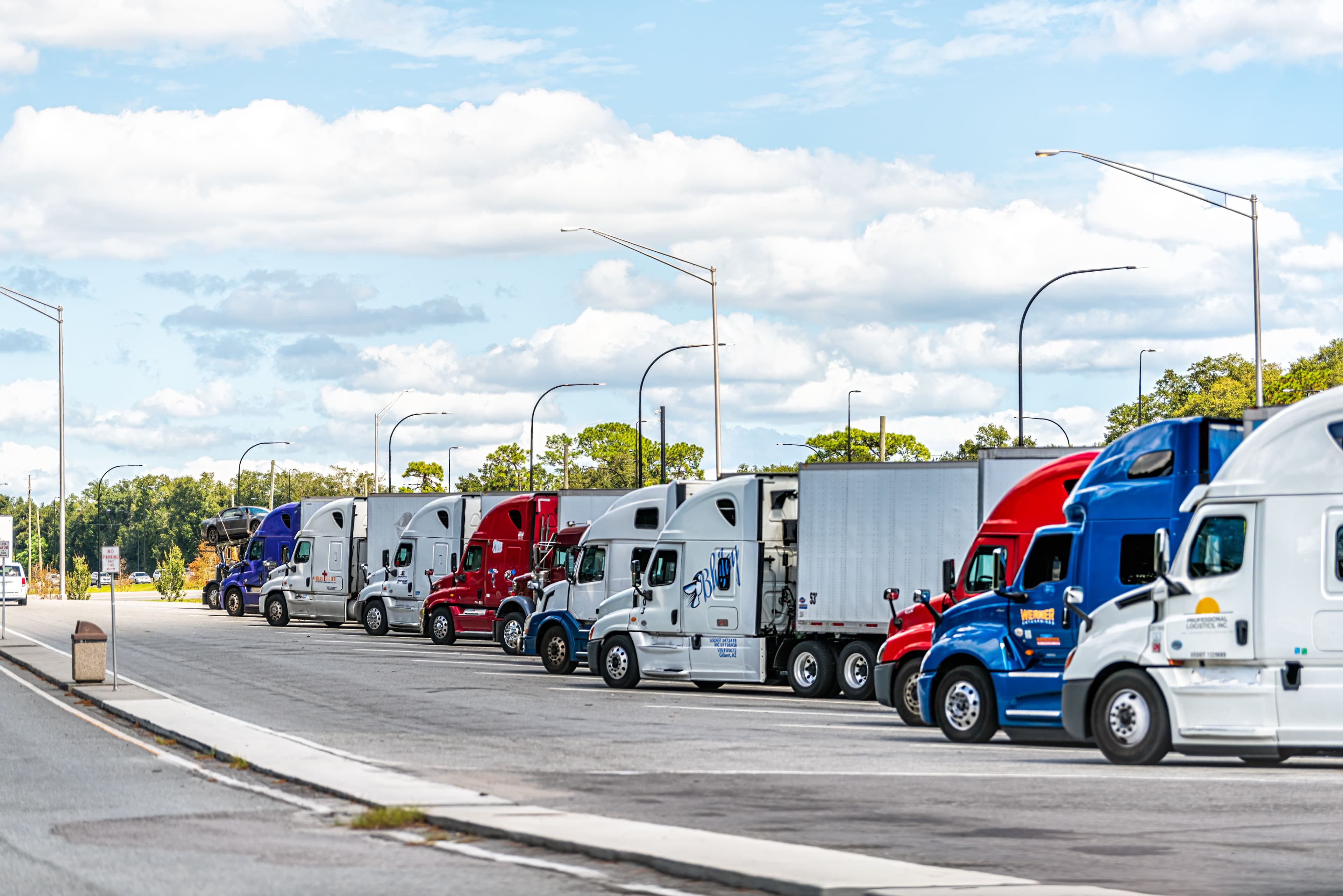Breakthrough’s Capac-ID Methodology

Trending
Top Posts
7 min read
February 3, 2021

Share:
Table of contents
Browse the table of contents to jump straight to the part you’re looking for
An often-overlooked aspect of managing the cost of moving goods in the truckload shipping market is fuel efficiency. This one number has a significant impact on the price shippers pay in fuel reimbursements, and can cost millions of dollars in excess transportation spend annually.
As managers of vast transportation networks, meeting or missing budgets often comes down to the details. Transportation professionals spend copious amounts of time negotiating fair rates, fuel reimbursements, accessorial charges, carrier contracts, and service requirements that differ by pennies on the dollar— and any minor fluctuations add up over time. This makes data accuracy imperative.
Amid the host of cost factors shippers scrutinize, it is easy for some parameters to fall under the radar. While fuel reimbursements, routing guides, and base rates are all recognized by transportation professionals as opportunities for cost savings, one detail often undervalued is fuel efficiency.
Using a fuel efficiency, or MPG, that appropriately reflects what your carriers can achieve on the road can be a challenge, but it is likely that shippers underestimate these numbers.
Data shows that most shippers use fuel efficiencies between 5.9 and 7.5 MPG. But studies have been done that prove many fleets actually achieve higher fuel efficiencies. According to the EPA SmartWay’s most recent results, dry van fuel efficiency has increased among carrier fleets by almost 18 percent in the last decade. To the average consumer, an 18 percent improvement may not seem like much, but those minor adjustments lead to better transparency and a greater degree of accuracy that matters to modern shippers.
Comparatively, Fuel Recovery initiatives place a great deal of focus on continuous improvement based on a shipper’s actual network data. For this reason, Breakthrough clients leverage benchmarking information to set their fuel efficiency parameters and tend to exceed the industry standard. Breakthrough clients’ fuel efficiencies tend to average around 6.61 MPG, while many can be much higher based on their unique network footprint.
Every year, new technology is released that is specifically designed to make trucks more efficient. Below are some of the most effective fuel efficiency technologies that are prevalent in fleets today:

Additionally, highly capable drivers and increased automation influence the use and effectiveness of new technology. New research and data about transportation and fuel efficiency technology are continually being released, and organizations like the EPA’s SmartWay program and the North American Council for Freight Efficiency (NACFE) are proving to the industry that more efficient vehicles are not only possible but accessible today.
In 2017 NACFE hosted its first-ever Run On Less event, which tracked ten real trucks, from ten actual fleets, over their typical lane schedule for three weeks. Over this three-week period, the fleet proved that 10 MPG is achievable in the real world when the right driver is equipped with the right technology. The average for diesel trucks was 8.7 MPG and the average for CNG + diesel trucks was 8.3 MPG.
It is important, however, to understand that just because a fleet can reach a certain fuel efficiency does not mean shippers can demand that precise number in their fuel reimbursement calculations. Additional factors such as regionality, the weight of your typical freight, length of haul, driver training and experience, and others will help shippers and carriers come to a reasonable agreement looking at a holistic view of your network.
Under most conditions, however, a 5.0 MPG fuel efficiency falls short of reality and costs shippers in the reimbursement process.
You can read NACFE’s full report, as well as their recommendations, confidence reports, and other information on the Run On Less website.
Many professionals want to know what is affecting their network today, not ten years down the road. “Under the right conditions” and “with the right technology” may sound like limiting qualifiers that illustrate a futuristic industry of tomorrow.
The data is telling a different story.
Reimbursement calculations, even among some industry-leading clients, lag what the industry can achieve, but diving into smaller segments of carrier fleets shows a deeper divide.

Source: FMCSA paid/cleansed inspection files. Fleet size determined by unique annual inspected tractor counts by US DOT #. Small < 100 Unique tractors, medium 100-499, large 500-1999; mega: 2000+ .We classified fleet size this way to avoid excluding fleets that would have dropped out of more recent versions of the carrier census (mostly small carriers). Some exclusions have been made based on insufficient VIN detail from inspection reports.
Data from the FMCSA show that large and mega carriers are investing more heavily in new equipment, effectively reducing their overall fleet age. With the elevated truck ordering environment of 2018 and 2019, the market has been flooded with new vehicles, and therefore new technology. Younger fleets translate to greater fuel efficiency. This divide highlights the danger of averaging data, and conversely the importance of looking at your unique network when making decisions that affect costs.
The gap between the fuel efficiency that carriers achieve on the road and what shippers use to calculate their fuel spend sheds light on the importance of managing fuel efficiency strategies.

Transportation is a game of slight adjustments that bring massive rewards when scaled. Every penny adds up in a network that spans millions of miles and gallons every year. Even slight adjustments to your MPG reap cost avoidance that will influence your bottom line.
Consider the example above: A fuel efficiency discrepancy of merely 0.5 MPG in a truck carrying the same freight on the same lane and on the same day, creates an on-cost of over $20. When driving from Milwaukee to Atlanta, which is a distance of 818 miles, the difference between reimbursing at a 6.0 MPG (which, remember, is on the high end of the industry average) and a 6.5 mpg results in over 9 percent in incremental fuel savings. Analyzing fuel efficiencies across a large network can lead to a huge cost avoidance.
The data discussed here indicates that most transportation teams need to take a closer look at their fuel efficiency strategies, and when done appropriately, this process could drive real change for your network. This is why paying attention to fleet technology and trends, and sourcing reliable benchmarking data is important. Breakthrough provides best-in-class industry information to our clients so that they are able to make data-informed decisions about their transportation network.
It is important to understand the nuances of fuel efficiency and the impact appropriate management could have on your organization. While it is clear that there is a cost component that shippers need to take into consideration, at the end of the day having transparency into your network’s actual consumption information will allow shippers to design and execute better sustainability strategies. Using actionable data can inform continuous improvement initiatives that will ultimately reduce consumption, decrease procurement costs, and make real progress on emissions reduction.
For information about how Breakthrough helps their clients reduce their transportation emissions, read more on our blog.

5 min read
January 2, 2026
Stay ahead of Q1 2026 diesel fuel tax by state adjustments. See how changes in states like MI and NJ will impact your transportation spend.
Read more
6 min read
January 1, 2026
Learn what a fleet card is, how they work, and the top fleet card benefits. Our guide explains how the right fleet card program can save you money.
Read more
5 min read
December 31, 2025
Discover how to implement a mobile fueling program that boosts fleet efficiency and cuts costs. Our guide covers evaluation, partner selection, and integration.
Read more